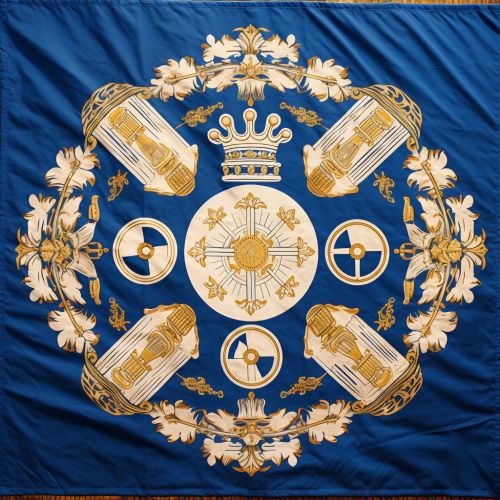French East India Company
History
The Compagnie des Indes Orientales was established by Louis XIV and his finance minister, Jean-Baptiste Colbert, in 1664 to compete with the British and Dutch East India companies in the spice trade. The company was granted a monopoly on French trade in the Indian Ocean, a region stretching from the Cape of Good Hope to the Straits of Magellan.


The company's initial years were marked by mismanagement and financial difficulties, leading to its dissolution in 1674. It was re-established in 1684 under the auspices of Louis XIV and enjoyed a period of relative stability and success, establishing several colonies in India, including Pondicherry, Chandernagore, and Mahe.
The French East India Company played a significant role in the politics of the Indian subcontinent, engaging in a series of conflicts with the British East India Company for control of trade and territory. These conflicts culminated in the Carnatic Wars, a series of military engagements in the mid-18th century that ultimately led to the British dominance in India.
Organization and Administration
The French East India Company was governed by a board of directors, known as the Council of the Indies, appointed by the French crown. The council was responsible for overseeing the company's operations, including the appointment of governors and other officials in the company's colonies.
The company's operations in India were divided into several administrative units, each headed by a governor. These units included the factories (trading posts) and the colonies, which were further divided into districts and towns.
The company's employees, known as servants, were divided into several ranks, including factors, writers, and soldiers. Factors were responsible for the company's commercial operations, while writers handled administrative tasks. Soldiers provided security for the company's factories and colonies.
Economic Impact
The French East India Company had a significant impact on the French economy. The company's monopoly on trade with the East Indies provided a significant source of revenue for the French crown. The company's trade also stimulated the development of several French industries, including shipbuilding, textiles, and manufacturing.
The company's trade with the East Indies also had a significant impact on the French economy. The company imported a wide range of goods from the East Indies, including spices, textiles, and precious metals. These imports contributed to the growth of the French economy and helped to finance the French crown's military and diplomatic efforts.
Decline and Dissolution
The French East India Company's decline began in the mid-18th century, following its defeat in the Carnatic Wars. The company's losses in these conflicts, combined with mismanagement and financial difficulties, led to its decline.
In 1769, the French crown dissolved the company and assumed direct control of its colonies in India. The company's assets were sold off, and its employees were absorbed into the French civil service.
The French East India Company's dissolution marked the end of France's attempts to establish a commercial empire in the East Indies. The company's former colonies in India were eventually ceded to the British following the Treaty of Paris in 1763.
Legacy
The French East India Company's legacy can be seen in the influence of French culture and architecture in its former colonies, particularly in Pondicherry. The company's influence can also be seen in the development of French trade and industry in the 17th and 18th centuries.
Despite its ultimate failure, the French East India Company played a significant role in the history of European colonialism in the East Indies. Its history provides valuable insights into the dynamics of colonial trade and politics in the early modern period.
